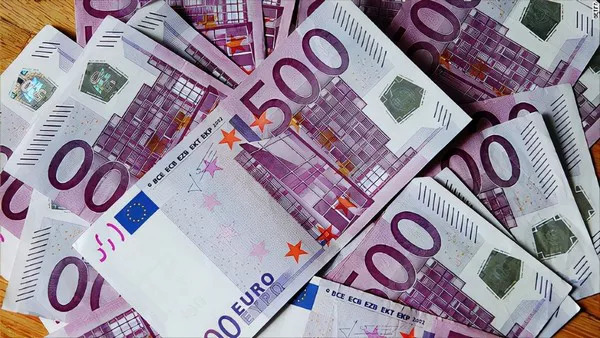When traveling to France or engaging in business transactions there, understanding the local currency is crucial. France is part of the Eurozone, which primarily uses the euro as its currency. However, it’s essential to know more about the euro, its denominations, and any other currencies that might be accepted. This article will provide a comprehensive overview of currencies used in France, focusing on the euro and any relevant details for travelers and traders alike.
The Euro: France’s Official Currency
The euro (EUR) is the official currency of France. It was introduced in 1999 for electronic transactions and became physical currency in 2002. The euro is used by 19 of the 27 European Union (EU) member countries, collectively known as the Eurozone.
History of the Euro
The euro was created to facilitate trade and economic stability among EU member countries. It aimed to unify the monetary policies of member states, making it easier for businesses and consumers to engage in transactions across borders. The euro replaced the French franc (FRF), which was the country’s previous currency.
Euro Denominations
The euro is divided into 100 cents. It comes in various denominations:
Coins: 1 cent, 2 cents, 5 cents, 10 cents, 20 cents, 50 cents, 1 euro, and 2 euros.
Banknotes: €5, €10, €20, €50, €100, €200, and €500.
Each denomination has distinct designs that reflect European culture and heritage.
Euro Symbol and Code
The symbol for the euro is € and its ISO code is EUR. This standardization helps facilitate international trade and financial transactions.
Currency Exchange in France
While the euro is the primary currency, understanding how to exchange money is important for travelers. Currency exchange can take place at banks, exchange offices, airports, and hotels. Here are some key points to consider:
Where to Exchange Currency
Banks: Banks generally offer better rates than exchange offices. However, they may charge a fee for the service.
Exchange Offices: These are often found in tourist areas. While convenient, their rates may not be as favorable as those at banks.
Airports: Currency exchange at airports is convenient but usually comes with higher fees.
Hotels: Some hotels offer currency exchange services, but the rates may be less competitive.
Fees and Commissions
When exchanging currency, be aware of potential fees. Different providers have varying policies, so it’s wise to compare rates. A small difference in exchange rates can significantly impact larger transactions.
Using ATMs
ATMs are widely available in France and can be an easy way to withdraw euros. Most international cards are accepted, but check with your bank regarding foreign transaction fees.
Credit and Debit Cards
Credit and debit cards are widely accepted in France. Most businesses, from restaurants to shops, prefer card payments over cash. Here are some details:
Card Acceptance
Visa and Mastercard are the most widely accepted credit cards. American Express is accepted but less commonly.
Contactless Payments
Contactless payment methods, including mobile wallets like Apple Pay and Google Pay, are increasingly popular. Many establishments have embraced this technology for ease of use.
Currency Conversion Fees
Be cautious about dynamic currency conversion (DCC). Some merchants may offer to convert your transaction into your home currency. While this may seem convenient, it often comes with unfavorable exchange rates. Always opt to pay in euros to avoid extra fees.
Traveling in France: Cash Needs
While cards are widely accepted, having some cash is advisable. Here are scenarios where cash may be necessary:
Small Vendors and Markets
Local markets, small shops, and vendors may only accept cash. It’s common to encounter establishments that do not take cards, especially in rural areas.
Tipping
In France, tipping is not mandatory, but it is appreciated. Small change is often left for service staff in restaurants. Having cash on hand for tips is a good practice.
Other Accepted Currencies
While the euro is the primary currency, some other currencies may be accepted in specific situations.
U.S. Dollars
In tourist-heavy areas, some businesses may accept U.S. dollars. However, this is rare and often comes with poor exchange rates. It’s best to use euros.
British Pounds
Similar to U.S. dollars, some tourist spots may accept British pounds, but again, it’s not common. Always check for acceptance before attempting to pay in a foreign currency.
Other Foreign Currencies
Other currencies, such as Swiss francs or Canadian dollars, may be accepted in specific tourist locations, but this is rare. Always prefer to use euros for transactions in France.
Currency Regulations in France
When carrying cash in France, it’s essential to be aware of regulations regarding currency limits and reporting.
Cash Limits
Travelers entering or leaving the EU with €10,000 or more (or equivalent in other currencies) must declare this amount. Failure to do so can lead to fines or confiscation.
Reporting Suspicious Activity
France has strict regulations against money laundering. If large sums of cash are involved in transactions, businesses may ask for identification or other documentation.
Conclusion
In summary, the euro is the official currency of France, widely accepted across the country. Understanding how to exchange currency, use credit cards, and handle cash is essential for both travelers and businesses. While some other currencies may be accepted in tourist areas, using euros is the best practice to ensure smooth transactions. Whether you are visiting France for leisure or business, being informed about currency dynamics will enhance your experience and facilitate financial interactions.
Related Topics:



























